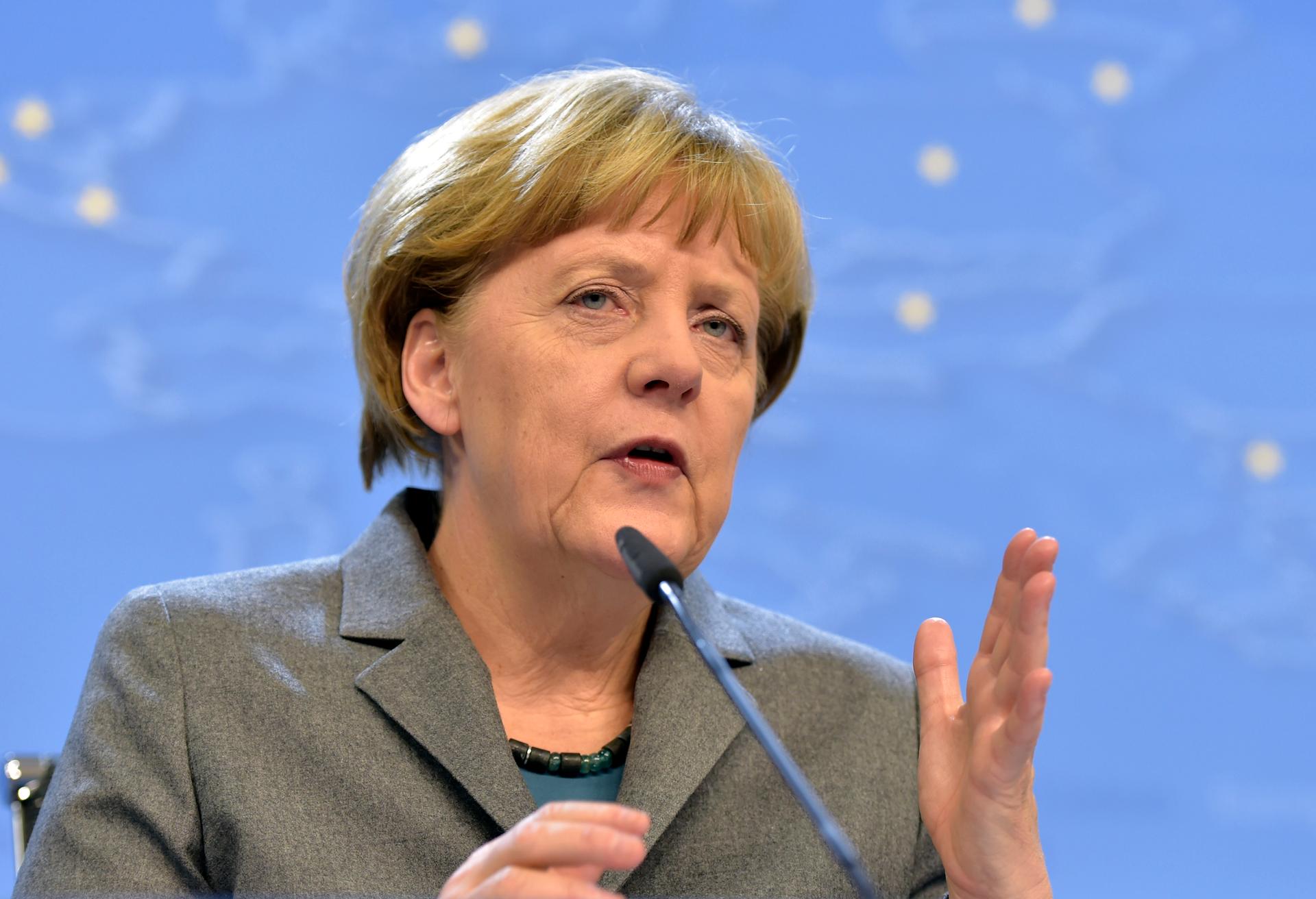German Chancellor Angela Merkel is flexing her diplomatic muscle across Europe
Germany's Chancellor Angela Merkel addresses a news conference after an European Union leaders summit in Brussels February 12, 2015.
On Sunday, a ceasefire between Russian-backed separatists and the Ukrainian army went into effect. But the agreement doesn't seem to be holding up — there are now multiple reports of deadly artillery fire, with both sides accusing each other of violating the new agreement.
German Chancellor Angela Merkel helped to negotiate the ceasefire, and today she continues deliberations over the Greek bailout at the European Council Summit in Brussels.
Jan van Aken, a member of the German Parliament and Germany's leftwing party, says even momentary peace in Ukraine is something to celebrate.
“Nobody expected it to hold, even for a minute, so it was a very positive surprise over the weekend,” says van Aken. “This is, to some extent, the success of Angela Merkel. Without her, I’m sure there wouldn’t have been any kind of ceasefire and no hope at all right now.”
Whether it’s the ceasefire in Ukraine or the debt crisis in Greece, many argue that Chancellor Merkel is striving for a united Europe. But van Aken says that despite her successes, Merkel is often the problem and not the solution to the major challenges facing Europe.
“When you listen to southern Europeans, be it Greece, Spain or Italy, there’s such an anger and even such a hatred towards Germany,” he says. “From my point of view, it’s really endangering the basic idea of the European Union — that the people of Europe work together. Right now, it’s more divided than ever.”
According to van Aken, Merkel is attempting to impose on Europe the harsh reforms that Germany's economy has operated under for the past 10 years.
“She’s saying not a single dime for any European country if they are not cutting wages, if they are not laying off public employees and so on and so forth,” he says. “We see now, three years later, that it is really a big problem in these countries. The economies are getting worse and worse — not better.”
Though the nation of 80 million holds most of the economic power, Germany is now virtually alone in Europe, argues van Aken, a trend that will continue if Merkel stays on this hardline path. But such hardline stances are sometimes necessary, especially when it comes to the situation in Ukraine.
“There’s really two very different German views on it,” he says. “Even within Angela Merkel’s party — there’s one half that really wants to take a much harsher stance against Vladimir Putin and they’re very much on the US line. The other half says we’ll never, ever have peace in Europe if we’re against Russia — that there will only be peace in Europe with Russia. So we really have to readjust our Russian policy that went totally wrong over the last 25 years.”
This story first aired as an interview on The Takeaway, a public radio program that invites you to be part of the American conversation.
Our coverage reaches millions each week, but only a small fraction of listeners contribute to sustain our program. We still need 224 more people to donate $100 or $10/monthly to unlock our $67,000 match. Will you help us get there today?
